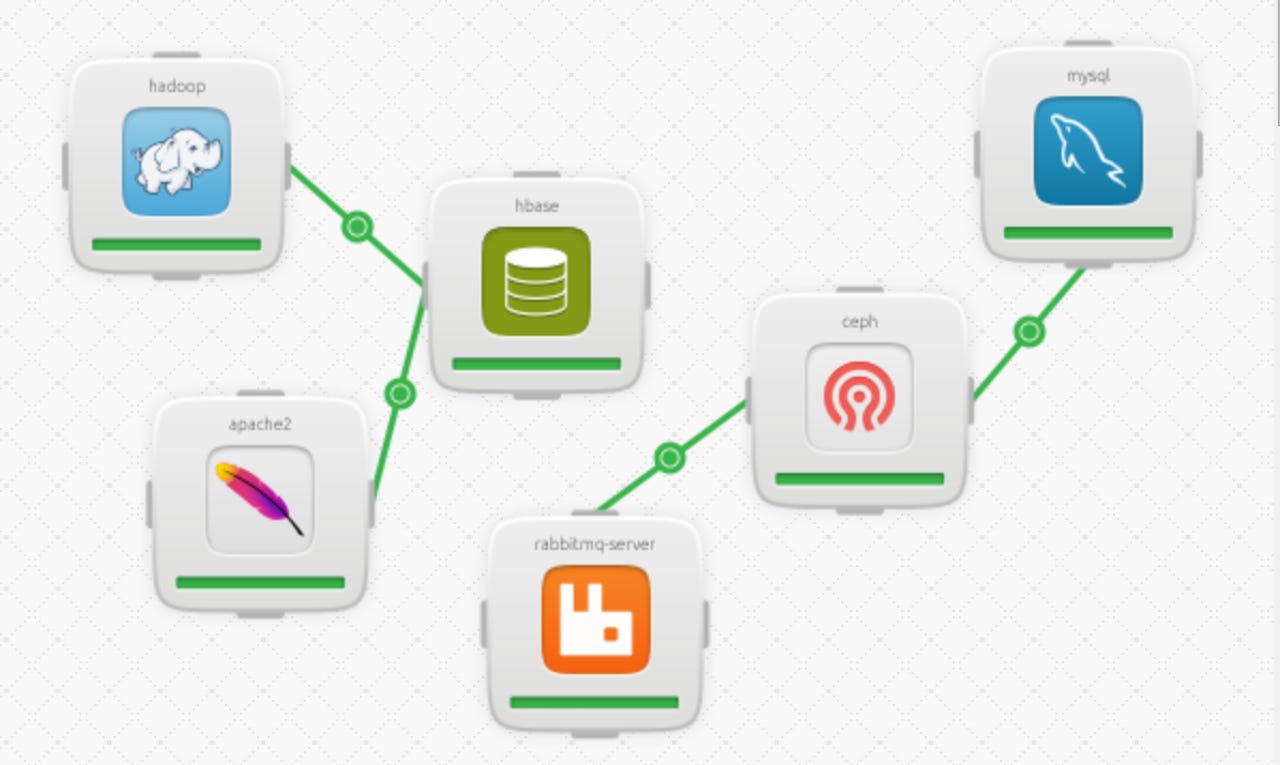Canonical Juju DevOps tool coming to CentOS and Windows

ATLANTA, GA — It's hard to shock an audience at a technical conference. Mark Shuttleworth, founder of Ubuntu Linux and its parent company Canonical, managed it several times in his OpenStack Summit keynote speech. No news may have been more surprising than that Canonical had ported its Juju DevOps program to its rival's operating systems: Red Hat's CentOS and Microsoft's Hyber-V and Windows Server 2012.

For those of you who haven't had the pleasure of meeting Juju, it's a cloud DevOps program that works at a higher level than Puppet, Chef, or Salt. Those programs automate server configuration by setting up virtual cloud servers so that each instance runs an identical software configuration. Juju works above them. It's meant to manage services, not machines.
Juju does this with "charms." Jorge Castro, Canonical's Ubuntu Cloud Community Liaison, explained that "charms are sharable, reusable, and repeatable expressions of DevOps best practices. You can use them unmodified, or easily change and connect them to fit your needs. Deploying a charm is like installing a package on Ubuntu. Ask for it and it’s there; remove it and it’s gone." With a twinkle in his eye, Castro added that, "Charms are like Lego blocks." Because you can deploy charms on a cloud via a whiteboard-like GUI, the open-source Juju is very easy to use.
Juju is more than just a pretty interface. Companies such as HP, Cisco, and NEC are already using Juju to deploy services in their corporate clouds.
Featured
While Juju has been ported to other platforms, it's been used primarily to let you run Juju on Ubuntu instances on other cloud platforms besides OpenStack. For example, in September 2013, Ubuntu on Windows Azure became Juju enabled. What Canonical has done now is beyond that.
First, Shuttleworth announced that IBM is devoting a full team to work with Canonical on Juju. Daniel Sabbah, IBM CTO of Next Generation Platform, said that "Juju will let users take full advantage of a cloud's underlying resources to optimize their workloads."
Specifically, Shuttleworth said the companies would be working on integrating Juju with OpenStack Heat, OpenStack's main orchestration program; Tosca, a cloud orchestration standard; and IBM's own and partners' applications.
Shuttleworth then said that customers had been asking for Juju for other operating systems. Thanks to a customer request, Canonical will be releasing Juju for CentOS. After the speech, Shuttleworth told me that this functionality is being added to meet the needs of a corporate CentOS customer, who really wanted Juju functionality, rather than in partnership with Red Hat. Between CentOS and Ubuntu, the two represent almost 80 percent of all cloud workloads.
Finally, and perhaps the most surprising news of all, Shuttleworth announced that Juju is coming natively to Hyper-V, Windows 2012, and Azure. According to Alessandro Pilotti, a Microsoft MVP and CEO of Cloudbase Solutions, "We added Juju support to Windows to meet enterprise customer requirements for integration between OpenStack and the Windows ecosystem." Specifically this was done to provide for provisioning and orchestration in mixed environment scenarios.
Pilotti continued: "Juju enables complex Microsoft deployments with just a few clicks, including Active Directory, IIS, SharePoint, Exchange and more." Of course Juju on Windows can't use Linux-based software, so Pilotti said "Juju on Windows uses PowerShell and Python and has all the same power as Linux charms. The result is amazing."
As Shuttleworth pointed out, this new implementation of Juju will enable you to integrate and orchestrate Windows and Linux services on the same OpenStack cloud. I don't know about you, but if I were in charge of managing any cloud deployment on any platform, I'd start checking out Juju now.
Related Stories: